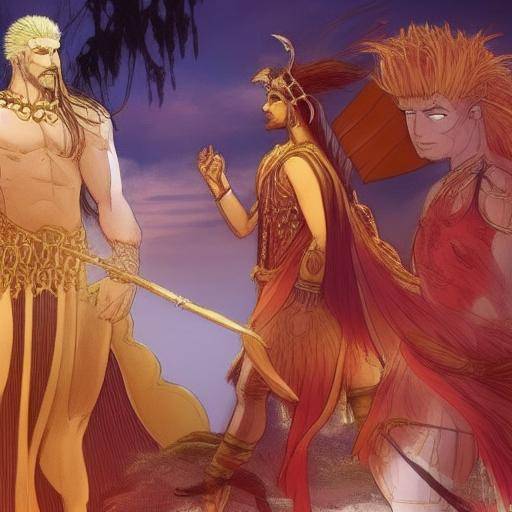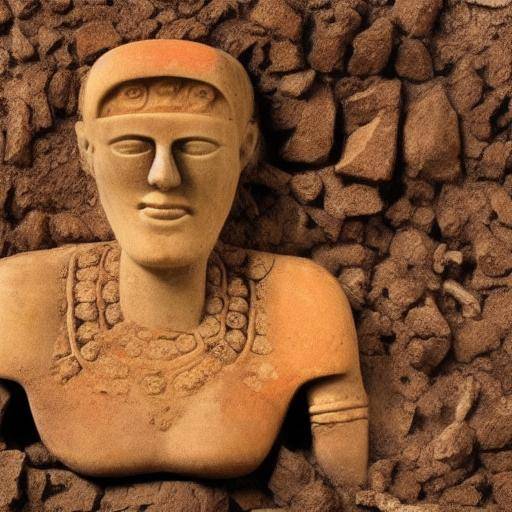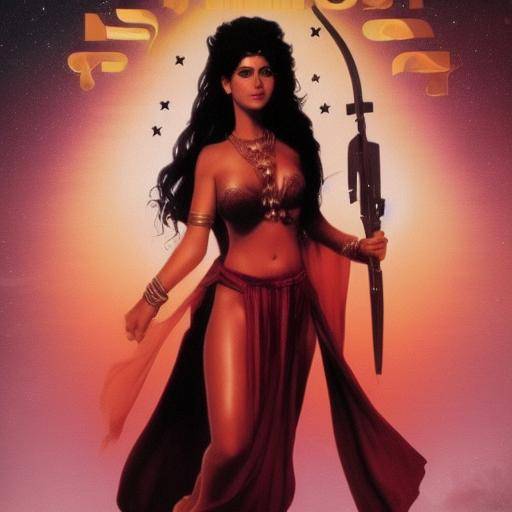
Introduction
Myths and legends are fundamental in the history and culture of ancient civilizations. This article explores the exciting adventures of Enkidu and Gilgamesh, two legendary figures of Mesopotamian mythology. From its origin in ancient Mesopotamia to its influence in literature and art, we will discover the lasting relevance of these characters and their impact on the understanding of myths and legends. Join us on this exciting journey through Mesopotamian mythology and learn about the world of Enkidu, Gilgamesh and his intricate stories.
History and Background
Mesopotamian mythology, one of the oldest in the world, gives us epic stories that have endured over millennia. Among them, stands out the epic of Gilgamesh, considered one of the oldest literary works of mankind. In this ancient epic poem is narrated the story of Gilgamesh, a legendary king of the city of Uruk, and his faithful companion Enkidu.
Gilgamesh's Epic
Gilgamesh's epic, whose most complete version is found in clay tablets written in cuneiforme, recounts the exploits of this semi-legendary king. The epic not only addresses Gilgamesh's prowess, but also explores his deep friendship with Enkidu and the mythical journeys they undertook together.
The World of Enkidu
Enkidu, a fascinating character in Mesopotamian mythology, is presented as a wild being living in harmony with nature in steppes. His encounter with Gilgamesh marks a crucial point in the epic, as friendship between both characters plays a central role in the development of history.
Cultural Relevance
Gilgamesh's epic is not only a literary work of great importance, but also provides a unique perspective on the mentality and cosmovision of ancient Mesopotamian civilizations. Through the characters of Enkidu and Gilgamesh, universal themes such as friendship, the search for immortality and confrontation with the supernatural are explored.
Deep analysis
Legacy and Influence
The legacy of Enkidu and Gilgamesh transcends the borders of Mesopotamian mythology. The friendship between both characters, their heroic deeds and their pursuit of meaning in a world full of challenges have inspired countless literary, artistic and philosophical works throughout history.
Universal Issues
Gilgamesh's epopeia addresses universal issues that remain relevant today, such as the nature of life and death, the struggle against the unknown and the search for transcendence. These themes give the story of Enkidu and Gilgamesh a depth and universality that have kept her alive over the centuries.
Contemporary Interpretations
The myth of Enkidu and Gilgamesh has been the subject of numerous interpretations in literature, cinema, music and other artistic expressions. Their ability to connect with contemporary audiences demonstrates the perdurability and relevance of these characters in the current popular culture.
Comprehensive review
Mythological parallels
In exploring Mesopotamian myths, it is interesting to observe parallels with other mythological traditions, such as Greek or Egyptian. These connections allow us to better understand the universal nature of myths and legends, as well as appreciate the differences and similarities between different cultures.
Comparative analysis
Enkidu vs. Gilgamesh: Differences and Similarities
Enkidu and Gilgamesh, while different figures, share a deep connection that transcends apparent differences. While Gilgamesh represents the archetype of the hero and king, Enkidu embodies purity and connection with nature. Exploring the similarities and differences between these characters enriches our understanding of their roles in Mesopotamian mythology.
Modern interpretations
The many modern interpretations of Enkidu and Gilgamesh invite us to reflect on the changing nature of myths and legends. As time passes, these legendary figures continue to evolve and acquire new meanings in the contemporary context.
Practical Tips and Accessible Recommendations
Literary exploration
Those interested in diving into Mesopotamian mythology can find in Gilgamesh's epic an inexhaustible source of inspiration. Reading academic texts or exploring contemporary adaptations will provide a more comprehensive view of the myths and legends of Enkidu and Gilgamesh.
Cultural Reflection
In studying Mesopotamian myths, it is essential to consider its importance in the cultural and artistic context of the former Mesopotamia. Exploring the legacy of Enkidu and Gilgamesh allows us to appreciate the richness and diversity of the mythology of this ancient civilization.
Conclusions and FAQs
Conclusion
The adventures of Enkidu and Gilgamesh transport us to a world of wonders and emotions. Through its legacy, the teachings of friendship, courage and the pursuit of meaning in life continue to resonate today. The study of these myths and legends invites us to explore the depths of the human condition and to appreciate the universality of the stories that transcend time and space.
Frequently asked questions
- What is the meaning of friendship between Enkidu and Gilgamesh?
- The friendship between Enkidu and Gilgamesh represents a link that surpasses differences and challenges, offering a deep insight into camaraderie and mutual support in the most difficult circumstances.
- How did Gilgamesh's epic influence in later literature?
- Gilgamesh's epic has influenced countless literary works, transmitting universal themes that remain relevant to contemporaneity and establishing a lasting legacy in world literature.
- Are there other relevant figures in Mesopotamian mythology in addition to Enkidu and Gilgamesh?
- Yes, Mesopotamian mythology is full of fascinating figures, such as the Inanna goddess, the Enlil god and the Humba monster, each with their own contribution to the rich mythological tradition of Mesopotamia.
- What lessons can be drawn from the adventures of Enkidu and Gilgamesh?
- The adventures of Enkidu and Gilgamesh offer a wide range of lessons on friendship, courage, the search for meaning and confrontation with the divine, providing deep reflections on the human condition.
- What have been the most outstanding contemporary adaptations based on the Gilgamesh epic?
- Gilgamesh's epic has been adapted in literary, theatrical and cinematic works, showing its continued influence and adaptability in various artistic expressions.
- How has Gilgamesh's epic been preserved over time?
- The preservation of Gilgamesh's epic has been achieved through written copies of clay tablets and the work of scholars and archaeologists who have worked to decipher and preserve this invaluable legacy of Mesopotamian mythology.
External Sources
- British Museum: Exploring Mesopotamian Culture
- Academic Research: Gilgamesh's Epic and Influence in Literature
- Myths and Legends in World Literature: A Comparative Perspective
Conclusion
The epic of Enkidu and Gilgamesh is a treasure of Mesopotamian mythology, a fascinating legacy that transcends the centuries and continues to inspire later generations. Through their adventures, the lasting friendship between Enkidu and Gilgamesh, as well as their clashes with the supernatural, provide timeless teachings that today echo. In analyzing their myths and legends, we enter a world of wonders and ancestral wisdom that enriches our understanding of human condition and the richness of cultural traditions. The relevance of Enkidu, Gilgamesh and Mesopotamian myths persist, reminding us of the universality and timeliness of the great narratives that transcend the barriers of time and space.
Dive into the wonderful stories of Enkidu and Gilgamesh and discover the richness of Mesopotamian mythology!
With this article, we have gone into the depths of Mesopotamian mythology and unraveled the fascinating stories of Enkidu and Gilgamesh. We hope that this immersion in the rich mythological tradition has broadened your understanding and appreciation for these legendary characters.






